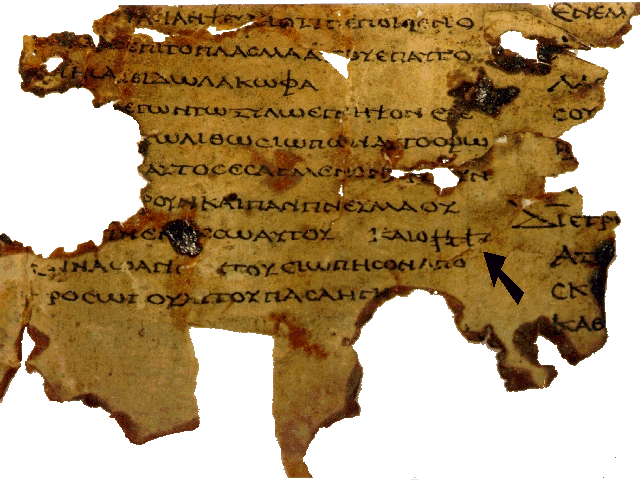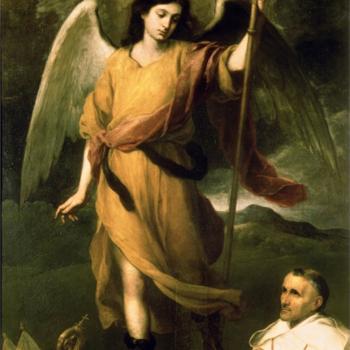
Norman L. Geisler (1932 – 2019) was an American evangelical Protestant theologian, philosopher, and apologist. He obtained an M.A. in theology from Wheaton College and a Ph.D. in philosophy from Loyola University, and made scholarly contributions to the subjects of classical Christian apologetics, systematic theology, philosophy of religion, Calvinism, Catholicism, biblical inerrancy, Bible difficulties, biblical miracles, the resurrection of Jesus, ethics, and other topics. He wrote or edited more 90 books and hundreds of articles.
Dr. Geisler was the Chairman of Philosophy of Religion at Trinity Evangelical Divinity School (1970–79) and Professor of Systematic Theology at Dallas Theological Seminary (1979–88) and a key figure in founding the Evangelical Philosophical Society. He also co-founded Southern Evangelical Seminary. He was known as an evangelical Thomist and considered himself a “moderate Calvinist”. He was not an anti-Catholic (i.e., he didn’t deny that Catholicism was fully a species of Christianity).
This is one of a series of comprehensive replies to his book, Roman Catholics and Evangelicals: Agreements and Differences (co-author, Ralph E. MacKenzie, graduate of Bethel Theological Seminary-West; Grand Rapids, Michigan: Baker Academic, 1995). It’s available online in a public domain version, which has no page numbers, so I will utilize page numbers from my paperback copy, for the sake of full reference. I consider it the best Protestant critique of Catholicism (especially in terms of biblical arguments) that I have ever found, from any time period. The arguments are impressively presented, thought-provoking, respectful, respectable, and worthy of serious consideration (which I’m now giving them).
I’ll be concentrating on the eight sections of Part Two: “Areas of Doctrinal Differences” (202 pages). These installments will be listed and linked on my Calvinism & General Protestantism web page, in section XVII: “Catholics and Protestants” (second from the end). Dr. Geisler’s and Ralph MacKenzie’s words will be in blue. My biblical citations are from RSV.
*****
The fact that the New Testament often quotes from the Greek Old Testament in no way proves that the apocryphal books contained in the Greek manuscript of the Old Testament are inspired. (p. 161)
I would respond in two ways:
1) Arguably the NT does cite the deuterocanon (even quite a bit), depending on how one defines “citation” (a complex issue that I dealt with in depth in #2 of this series). See my three-part listing of no less than 171 proposed examples (one / two / three).
2) If a Bible translation is cited as authoritative and inspired, and it includes sections that (possibly) happen not to be cited, it follows straightforwardly that the non-cited portions are also regarded as inspired and canonical (in this instance, books contained in the Greek Septuagint translation of the OT). One, therefore, has to determine which books were included in the Septuagint.
It is not certain that the Septuagint (LXX) of the first century contained the Apocrypha. The earliest Greek manuscripts that include them date from the fourth century A. D. (p. 161)
The great Protestant Bible scholar F. F. Bruce, in his book, The Canon of Scripture (Downers Grove, Illinois, InterVarsity Press, 1988), devotes a twelve-page chapter to the Septuagint. In listing the books included in it, he includes the deuterocanonical books, Judith, Tobit, a “considerably expanded edition” of Esther, Wisdom, Ecclesiasticus (aka Sirach), Baruch, History of Susanna and Bel and the Dragon (portions of an expanded book of Daniel), and 1 and 2 Maccabees, which “form a sort of appendix” (pp. 47-48). This includes all seven books of the deuterocanon (called “Apocrypha” by Protestants), as well as additional chapters for Esther and Daniel.
With regard the issue of the content of the Septuagint in the first century AD, an argument is made by Catholic apologist Gary Michuta:
Rabbi Akiba ben Joseph (A.D. 37-135) . . . became the head of a rabbinical school located in the city of Jamnia during the first decades of the second Christian century. After the First Jewish Revolt (A.D. 66-73), the school in Jamnia became the center for Jewish religious and political thought. . . .
Until then, the Jews never had a single normative biblical text. The Old Testament circulated in many different translations and recensions, the most popular being the Greek translation of the Old Testament known as the Septuagint. Therefore, the first order of business was to adopt a single normative Hebrew text, thus setting the limits of the rabbinical Bible. It is here that Rabbi Akiba inadvertently tips his hand with regard to the Deuterocanon.
In a work called Tosefta Yadayim, 2:13, Akiba says: “The Gospels and heretical books do not defile the hands. The books of ben Sira, and all other books written from then on, do not defile the hands” (2:13).
The phrase “do not defile the hands” refers to a non-sacred text. Sacred texts require ritual hand washing after they were touched. Non-sacred texts do not. Therefore, Akiba is stating that the texts listed are not sacred (i.e., they are not Scripture).
Since the Gospels appear to be mentioned, Akiba’s remarks are in regard to the Christian scriptures. What’s fascinating here is that Akiba’s rejection of the New Testament as Scripture also includes the rejection of the “books of ben Sira and all other books written from then on.” The book of Sirach (ben Sira) is the oldest book of the Deuterocanon (or what Protestants call the Apocrypha). Therefore, this decree rejects the whole of the Deuterocanon as inspired Scripture.
This declaration suggests two very important points. First, there must have been a significant number of Jewish Christians that accepted the Deuterocanon as Scripture prior to Akiba’s remark (i.e., before A.D. 132) for Akiba to associate it with the Christian scriptures. Second, Akiba must have believed that there existed a real possibility that non-Christian Jews may accept it as sacred Scripture as well. Otherwise, there would be no need for his ruling.
Although Rabbi Akiba had no love for Christianity, he nevertheless reveals a point commonly disputed by non-Catholics: namely, that the earliest Christians did indeed hold the Deuterocanon to be Sacred Scripture, just as they did the Gospels and the New Testament. Akiba doesn’t argue the point; rather, he assumes it and legislates against it. (“The False Prophet and the Deuterocanon,” Catholic Answers Magazine, 10-27-16)
This scenario is reflected in the entry, “Akiba ben Joseph,” by Luis Ginzberg, in the Jewish Encyclopedia (1906):
Akiba was the one who definitely fixed the canon of the Old Testament books. He protested strongly against the canonicity of certain of the Apocrypha, Ecclesiasticus, for instance (Sanh. x. 1, Bab. ibid. 100b, Yer. ibid. x. 28a), . . . To the same motive underlying his antagonism to the Apocrypha, namely, the desire to disarm Christians—especially Jewish Christians— who drew their “proofs” from the Apocrypha, must also be attributed his wish to emancipate the Jews of the Dispersion from the domination of the Septuagint, the errors and inaccuracies in which frequently distorted the true meaning of Scripture, and were even used as arguments against the Jews by the Christians.
It follows that the Septuagint at this time (early 2nd century) contained the deuterocanonical books. Geisler’s uncertainty on that point seems quite unwarranted. Also in this early period, St. Clement of Rome, in his epistle, written c. 80 AD in Greek, referred to the deuterocanon that was part of the Greek Septuagint, four times:
1 Clement 3 . . . nor acts a part becoming a Christian, but walks after his own wicked lusts, resuming the practice of an unrighteous and ungodly envy, by which death itself entered into the world.
Wisdom 2:24 but through the devil’s envy death entered the world, and those who belong to his party experience it.
***
1 Clement 27 . . . By the word of His might He established all things, and by His word He can overthrow them.
Who shall say unto Him, What have you done? Or, Who shall resist the power of His strength?. . .Wisdom 11:21 For it is always in thy power to show great strength, and who can withstand the might of thy arm?
Wisdom 12:12 For who will say, “What hast thou done?” Or will resist thy judgment? . . .
In 1 Clement 55, Judith is compared to Esther and described as one who was “strengthened by the grace of God” — and is called “blessed Judith”. In the same section, Clement also makes reference to the additional chapters of Esther that are only in the deuterocanon. He wrote, “For with fasting and humiliation she entreated the everlasting God, who sees all things; and He, perceiving the humility of her spirit, delivered the people for whose sake she had encountered peril.” This must be derived from those additional chapters, since the rest of the book (that Protestants exclusively accept) never mentions God at all. St. Clement appears to be citing Esther chapter 14 and descriptions of God’s deliverance of the Jews in passages such as 10:6, 9 and 16:21.
The Shepherd of Hermas (Greek, c. 140), in Book II, Commandment 1, states, “First of all, believe that there is one God who created and finished all things, and made all things out of nothing.” This is never stated explicitly in the Protestant Old Testament. But it is in the deuterocanon:
2 Maccabees 7:28 . . . look at the heaven and the earth and see everything that is in them, and recognize that God did not make them out of things that existed. . . .
The Didache (Greek, c. 140), chapter 4, states, “Be not a stretcher forth of the hands to receive and a drawer of them back to give.” This appears to be a citation of Sirach 4:31: “Let not your hand be extended to receive, but withdrawn when it is time to repay.”












